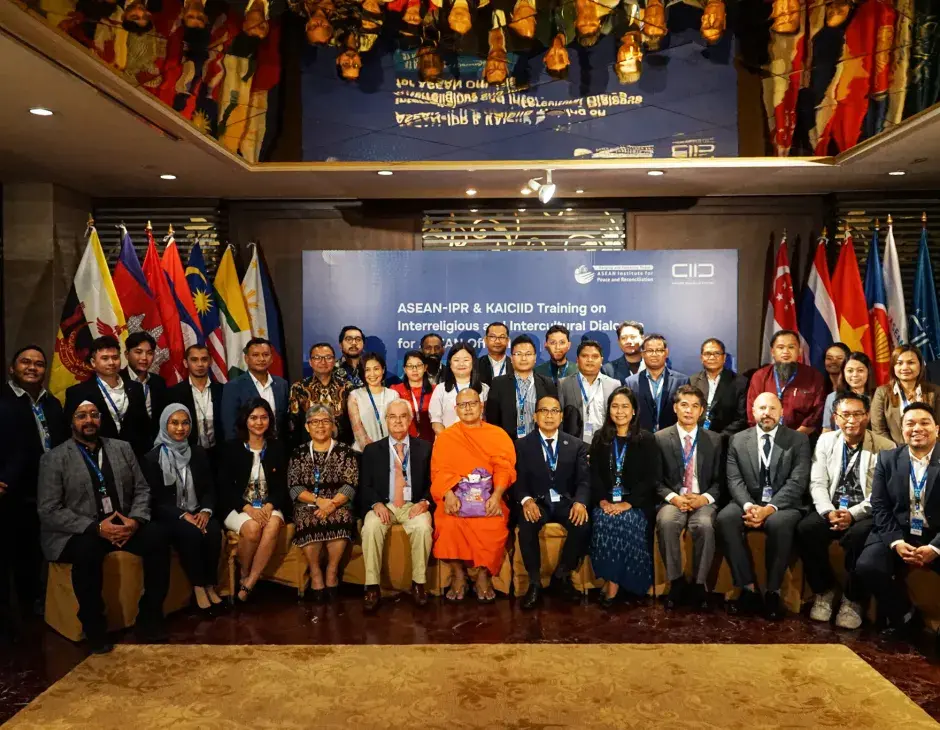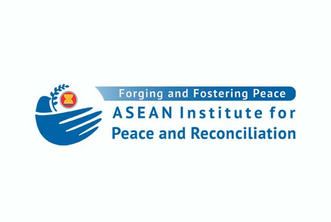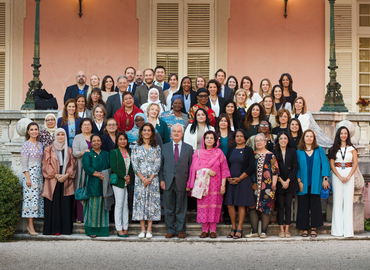Building Cultures, Fostering Peace: KAICIID’s Role in ASEAN’s Interreligious Dialogue Initiative
In an ever-diversifying world, the practice of dialogue provides a pathway for peace and mutual understanding. The International Dialogue Centre - KAICIID, an intergovernmental organization renowned for its commitment to dialogue among different religious traditions, has a pivotal role in shaping the landscape of interreligious and intercultural discourse within Southeast Asia. Through its partnership with the Association of Southeast Asian Nations Institute for Peace and Reconciliation (ASEAN-IPR), KAICIID is spearheading a training initiative aimed at equipping officials from all ASEAN member states with the skills needed to navigate the complex tapestry of faiths and cultures within the region.
The KAICIID-ASEAN-IPR collaboration is set against the backdrop of a region rich with diversity but also riddled with challenges to peace and stability. Through its field programmes across Africa, the Arab Region, Europe, and Asia, KAICIID continues to establish itself as a pivotal force in peacebuilding, equipping key leaders and organizations to use dialogue as a tool to connect constituencies from diverse religious and cultural backgrounds. As a unique hybrid intergovernmental organization with a multi-religious board of directors, KAICIID is uniquely positioned to bridge the gap between policy and practice, theory and action, by connecting.
” KAICIID’s partnership with ASEAN-IPR is a testament to our commitment to building bridges between policymakers and local communities. By fostering a shared understanding and respect for religious and cultural diversity, KAICIID is empowering ASEAN officials to craft policies that uphold social cohesion and peace within the region. We aide nurturing the roots of peace, moderation, and tolerance, fostering a future where dialogue triumphs over discord.” Said Ambassador António de Almeida Ribeiro, Deputy Secretary General of the International Dialogue Centre – KAICIID, in his opening remarks on behalf of the Centre’s Secretary General, Dr. Zuhair Alharthi.
The initiative comprises the development of training modules tailored to the ASEAN region’s unique context by employing KAICIID’s existing expertise in interreligious dialogue (IRD) and intercultural dialogue (ICD). The modules are designed to be interactive and hands-on, with a focus on practical application, ensuring that participants are not only recipients of knowledge but also able to actively contribute their experience and expertise to the learning process. This is achieved through a blend of lectures, discussions, simulations, role-plays and group assignments that encourage the application of IRD and ICD in real-world scenarios. This approach is designed to meet the unique professional development and learning needs of government officials, who are increasingly recognizing the need for IRD and ICD in their respective societies.
Through this immersive approach, KAICIID is combining expertise with leading regional experts to integrate the Centre’s global insights with the regional experiences and contextual needs of Southeast Asia. The programme targets junior to mid-level officials from ASEAN member states, focusing on a curriculum that underscores the value of dialogue in resolving conflicts and fostering social cohesion. With the core dialogue foundation of KAICIID at its heart, these modules will explore the history, theories, methods, and outcomes of dialogue, emphasizing its role in conflict transformation and peacebuilding.
Furthermore, the collaboration highlights the importance of networking, with KAICIID's partnership serving as a catalyst for ASEAN's broader engagement with regional and global initiatives. The training extends beyond the immediate scope of ASEAN, with the potential to influence a wider array of stakeholders, from think tanks to civil society groups, promoting a ripple effect of dialogue and understanding.
The training aligns with the ASEAN-IPR long-standing commitment to peace and stability, as enshrined in the Bangkok Declaration. It draws upon ASEAN-IPR’s responsibility to research, build capacity, and disseminate information on peace, conflict management, and resolution. The initiative underscores the crucial role of interreligious dialogue (IRD) and intercultural dialogue (ICD) in peacebuilding, something that has yet to be fully integrated into the training of government officials.
Moreover, the training is set to culminate in a pilot session, a testing ground for the developed modules, and a space for further refinement based on participant feedback. This pilot will be a critical step towards institutionalizing the training within ASEAN-IPR’s offerings, potentially marking a significant shift in how officials across the region engage with the complexities of faith and culture.
KAICIID’s role is not only that of an educator but also that of an enabler, providing funding and technical support on the initiative to support ASEAN-IPR. Southeast Asia’s rapid economic and social development is creating new challenges presented by the intersections of tradition and innovation. It is for this reason that a nuanced understanding of the unparalleled cultural and religious diversity of the region is the cornerstone of this joint initiative. This collaboration between KAICIID and ASEAN-IPR is positioned to set a new standard for engaging the traditional wisdom drawn from cultural and religious diversity with reverence and sensitivity in one of the most youthful, dynamic and diverse regions in the world.
In the historic halls of Queen’s Library at the Palácio das Necessidades, a new chapter was added to…
The International Dialogue Centre – KAICIID and the Association of Southeast Asian Nations Institute for Peace and…





